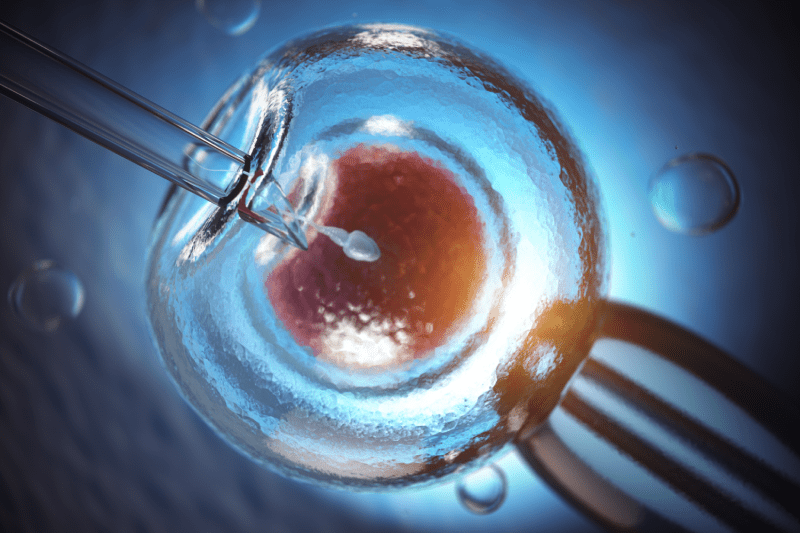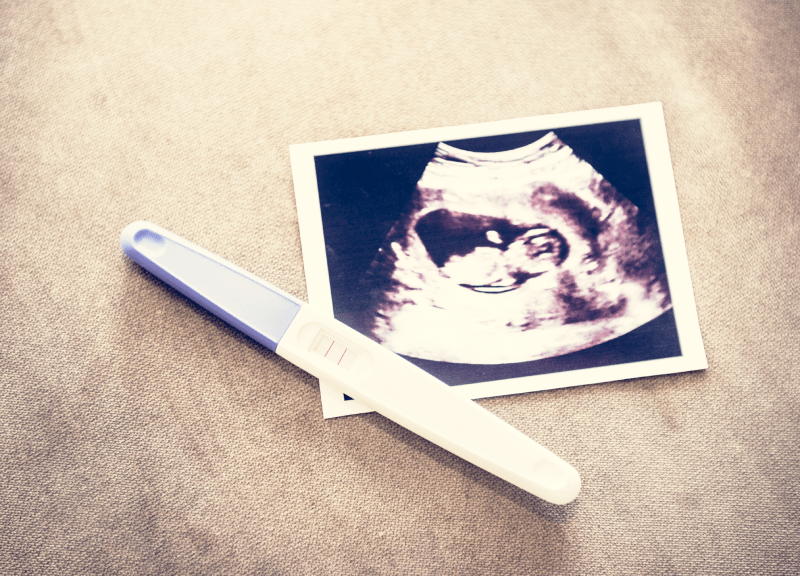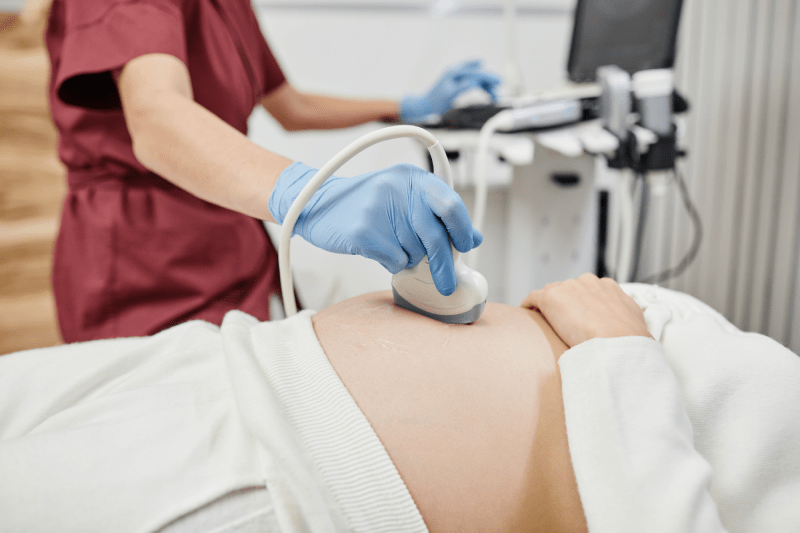How to Have a Child as a Single Woman
Are you thinking about having a child by yourself as a single mother? You are not alone; today, single women around the world are increasingly choosing to become single mothers.
While traditionally conception would not be possible without a partner, now, there are several options for women to become pregnant on their own thanks to the developments in fertility treatments. If you want a biological child, there are treatments that can help you.
Choosing to become a single mother is not an easy decision, but many women feel ready to have a family of their own. Single motherhood can be a thrilling and empowering experience for women. The journey to giving birth to a healthy baby begins with choosing the right fertility treatment. In this article, we will look at what your options are for having a family without a partner.
Fertility Treatments for Single Women
There are numerous reasons why a woman may wish to be a single mother. If you decide to have a child without a male partner for whatever personal reason, you will have several treatment alternatives available to you. Single women can achieve pregnancy through the methods of assisted reproductive technologies (ART) such as intrauterine insemination (IUI), IVF, egg freezing, and surrogacy. All the medical terms may seem difficult at first glance but you will have a general idea about your options once you have read this article.
Sperm Donation
While you do not need a partner to have a baby, you do need sperm for the fertilization of eggs. The rules around how the sperm can be provided depend on where you are getting your fertility treatment. Basically, there are two ways to get sperm: using a sample donated by a friend or family member, or getting donor sperm through a fertility clinic’s sperm bank.
Sperm banks accept donations after potential donors have passed a screening procedure assessing their health and well-being. Patients can search the donor database to find a suitable donor if they need a sperm donor. Sperm donors can be non-anonymous or anonymous. In order to avoid future issues regarding parental rights, most women prefer this option. Even if you choose to have an anonymous sperm donation, you will be able to learn non-identifying information about the donor such as their age, physical qualities, ethnicity, religion, educational history, and more.
Intrauterine Insemination (IUI)

Intrauterine Insemination (IUI), also known as artificial insemination, is the most common fertility method using donor sperm for single women. If the woman does not have any infertility problems, IUI can be an easy alternative for achieving pregnancy. Similar to other fertility treatments, the chances of achieving a successful pregnancy through IUI depend heavily on the age and fertility condition of the woman.
During IUI treatment, the donor sperm will be inserted directly into the uterus using a special syringe or cervical cap by your fertility specialist. The sperm is prepared before the insemination procedure so that it is more concentrated which increases the chances of fertilization. Because the sperm are inserted directly in the uterus, avoiding the cervix and enhancing the delivery of the sperm to the egg, IUI increases the likelihood of conception. Two weeks later, you can use a pregnancy test to see if your IUI was effective.
IVF with Donor Sperm for Single Women

Can a single woman get IVF? While there are countries that ban IVF for single or lesbian women, the answer to this question is yes if you are traveling to the right destinations.
In vitro fertilization or IVF is one of the greatest advancements in fertility treatments. Since the first birth of the first IVF baby around 40 years ago, more than 8 million babies around the world have been born with IVF treatments. While the majority of people who are getting IVF treatments are heterosexual couples with infertility problems, IVF has become a frequently preferred alternative for single women as well and the number of single women wishing to have a family with IVF is growing.
In vitro fertilization is a part of assisted reproductive technologies. It entails the fertilization of the eggs in an IVF laboratory rather than inside the human body. IVF is recommended over IUI if the patient is experiencing infertility issues or is older because it increases the chances of a successful pregnancy.
Women typically release one egg each month, however, to maximize the likelihood of conceiving through IVF more eggs are needed. Because of this, the initial phase of IVF entails regulating the woman’s ovulation cycle and using fertility medicine to stimulate the production of multiple eggs. When the eggs are ready, they are collected from inside the ovaries. Then the donor sperm is used to fertilize the eggs. The fertilized eggs mature into embryos and their growth and development are closely inspected. Later, the healthiest embryo or multiple embryos are implanted in the uterus of the mother and the pregnancy results are awaited.
It is important to note that several IVF cycles may be necessary to achieve a successful pregnancy. Generally, the younger the age of the patient, the higher the chances of conception per cycle.
IVF with Donor Egg for Single Women

While single women can use their own eggs for IVF treatments, it is possible to use donor eggs as well. Donor eggs or oocyte donation is a preferred method for patients who cannot produce enough suitable eggs. Egg donations are used frequently among single women who are over 40 years old as egg production decreases over time. It can also be helpful in situations such as when there is a risk of transmitting genetic diseases to the baby. Thousands of single women become mothers with IVF using egg donations.
Just like with sperm donations, the egg donor can be a person that the patient knows or the eggs can be acquired from an egg bank. It is common for a sister or a friend to volunteer to donate their eggs.
On the other hand, the eggs can be donated by an open-identity or anonymous donor. If the egg donation from an anonymous donor is used, you will be choosing a donor from the database offered at the fertility clinic. You will be able to learn the details about the donor such as their eye or hair color, when and where they were born, their ethnicity, religion, educational history, and more. All the donors must pass medical and psychological examinations to ensure the health of the eggs.
After the donor is decided and the eggs are acquired, the IVF procedure will proceed as usual. Donor sperm will be used to fertilize the donor eggs. The resulting embryos will be monitored for their growth and health. Finally, the healthiest embryos will be placed into the woman’s uterus in the hopes that they will successfully implant in the uterus’s wall and result in a pregnancy.
Fresh or frozen eggs can be used during the IVF process. Depending on which option is chosen, there will be different steps in the process. Using frozen eggs can be faster and more convenient, while more eggs can be retrieved with fresh egg donations and the success rate is slightly higher.
IVF with Embryo Donation for Single Women
Another option for people wishing to achieve single motherhood is embryo donation. Just like how sperm and eggs can be frozen for future use, embryos can also be preserved to be used later on.
Thousands of people go through the IVF process each year. For each IVF cycle, multiple embryos are prepared. Once the patients have achieved a successful pregnancy and given birth to a healthy baby, there are usually several of these embryos that have been stored and not used. Many people find it difficult to destroy the remaining embryos for emotional or ethical reasons and voluntarily donate them to embryo banks. Using donor embryos is an alternative for women do cannot use their own eggs for IVF.
Egg Freezing for Single Women

Egg freezing, also known as oocyte cryopreservation, is a type of fertility preservation that can give single women more flexibility about their fertility. If you’re not ready to start a family just yet but want to keep the possibility of doing so, egg freezing can be an option for you.
Researches show that the number of eggs produced in the ovaries and their quality decreases with age which means that the chances of getting pregnant also decreases. This is why many women wish to preserve their eggs before it is too late. The ideal time for egg freezing is when the woman is still young and her eggs are of good quality.
There are many reasons for freezing one’s eggs. A single woman might simply be not ready for being pregnant or having a baby, whether for emotional, physical, or economic reasons. Or she could be waiting to meet the right person to start a family with but worried about her fertility due to her age. Egg freezing can also be a great solution for women who will go through a medical treatment that could negatively affect their fertility such as cancer treatment.
If you are a suitable candidate for egg freezing treatment, you will first be using medication that stimulates the production of multiple eggs. The development of the eggs in the ovaries will be monitored and they will be collected once they reach the ideal size with a minor procedure. Right after the egg retrieval procedure, the eggs will be frozen for future use. The eggs can be frozen in short-term or long-term and the rules concerning how long eggs can be preserved depend on the country and the medical facility.
Surrogacy for Single Women

Surrogates, or gestational carriers, are women who carry children to term for another person or a couple. Surrogacy is a preferred method for many groups including heterosexual couples, same-sex couples, single men, as well as single women.
There are a number of reasons why a woman might not be able to get pregnant or give birth including the absence of a uterus, problems with the functioning of the uterus, or medical conditions that put the mother in danger during childbirth. Surrogacy is a great alternative for single women who wish to have a child but cannot go through pregnancy themselves. It is also an end solution for women who have had repeated unsuccessful IVF cycles or miscarriages.
If a single woman decides to have a baby through surrogacy, her own eggs or donor eggs can be used during the surrogacy treatment. Surrogates are not the biological parent of the baby they carry.
Once the surrogate is ready, the usual IVF procedure is followed and once a successful pregnancy is achieved, the surrogate carries the baby to term.
Finding a surrogate is the most important part of the process. Some people request the surrogacy of a family member or friend. This is a great solution as there is already an established trust between the two women.
However, there are also professional surrogates that you can get in contact with through surrogacy agencies. Finding a surrogate who understands you and who you can trust to help you with building your family is crucial to have a healthy surrogacy process. Professional surrogates receive payment for their support but the majority of surrogates are doing this because they want to help people build their own families.
Legality surrounding surrogacy can be complicated. For this reason, you should work with trusted agencies. You will be informed about all possible legal issues related to surrogacy and sign agreements with the surrogate to ensure there are no problems later on.
Start Early
If you wish to have a biological child without a partner, the aforementioned fertility treatments can help to have your own family. However, it is important to note that these treatments do not guarantee that you can have children at any age. Women’s fertility starts to decline over time starting in their 30s. The number of eggs produced each month and egg quality starts to decrease drastically. Usually, the reproductive years of a woman end 5-10 prior to menopause.
Assisted reproductive technologies can help greatly with this problem but the treatment success rates get lower as women get older. IUI, or intrauterine insemination, using donor sperm, may be an option for women under the age of 35. Your fertility consultant can advise switching to IVF using donor sperm if you are 35 years of age or older. To improve their chances of becoming pregnant, women who are 40 years old or older may wish to think about using donor eggs as well. If you can afford it and know that you will want to have a baby in the future, it is recommended that you have your eggs frozen early on. While fertility treatments can help you, don’t forget that your age is also an important factor.
Overseas Fertility Treatment Options for Single Women
Fertility tourism, or reproductive tourism, is when couples or single people travel overseas to find fertility treatment instead of receiving treatment in their own country. Fertility tourism has been on the rise globally due to reasons such as legislative restrictions in the home country surrounding ART, long waiting lists, lack of donations at fertility banks, and expensive prices. Moreover, people choose to have treatments in fertility clinics with better success rates.
Having a child as a single mother is both an emotional and financial commitment. As multiple fertility treatment cycles may be necessary to achieve a successful pregnancy, the expenses can add up quickly and treatments might be too over the budget for some people. This is why the affordability of fertility treatments is crucial. Some countries have considerably high treatment costs compared to others. For example, while a cycle of IVF treatment in a Western European country may cost more than £8,000, it can cost more than half the price abroad.
Fertility treatments for single women are life-changing and choosing the right clinic and country is the most important decision in the process. We will introduce two of the best options for fertility treatments for single women; Thailand and Cyprus.
Fertility Treatments for Single Women in Thailand


Thailand’s unique culture, stunning scenery, and friendly people have made it one of the most popular tourist destinations in the world. Thailand recently rose to the top of the list of locations for medical tourists as well, admitting millions of patients each year, adding to its tourism boom. The country is home to some of Southeast Asia’s largest hospitals. Thai medicine uses cutting-edge medical technology to provide affordable treatments.
Many foreign patients choose to receive medical treatments at credible Thai fertility clinics due to the inexpensive IVF expenses in locations like the capital Bangkok. The cost of many medical procedures and treatments in Thailand is significantly lower than it would be in a western nation like European countries, Australia, or North America. IVF treatment packages are currently priced at about €6,800 at Thailand’s fertility clinics.
For more information about IVF treatments in Thailand, you can read “IVF Gender Selection and Fertility Centers in Bangkok, Thailand”.
Fertility Treatments for Single Women in Cyprus


Cyprus, an island nation in the Mediterranean, is a well-liked travel destination. Transport to the island is fairly convenient via a number of airports thanks to its near proximity to Turkey.
It is one of the most visited locations for fertility treatments as well. Many fertility clinics in Cyprus have been treating patients for many years and they are highly experienced in understanding the needs of each individual. This is why getting fertility treatments in Cyprus is a great option for single women. The prices are also more affordable compared to similar clinics in other countries. Below is the price list for current treatments offered in our contracted fertility centers in Cyprus.
| Treatment | Price |
| Classic IVF | €4,000 |
| IVF with Oosit Freezing | €4,000 |
| IVF with Sperm Donation | €5,500 |
| IVF with Oosit Donation | €6,500 |
| IVF with Embryo Donation | €7,500 |
| IVF + Gender Selection | €7,500 |
| IVF with Sperm Donation + Gender Selection | €8,500 |
| IVF with Oosit Donation + Gender Selection | €9,500 |
| IVF with Embryo Donation + Gender Selection | €11,000 |
| Micro-Tese | €3,000 |
| Embryo Freezing | €1,000 |
| Sperm Freezing | €750 |
IVF Gender Selection in Thailand and Cyprus

What is IVF gender selection? Gender selection, also known as sex selection or family balancing, allows couples or single people to choose the sex of their child. Many people, for various reasons and beliefs, wish to select the sex of their child.
This is possible with preimplantation genetic testing (PGT). PGT is used to identify genetic disorders in embryos during IVF treatment. During the test, the chromosomes of the embryo can also be inspected which enables embryologists to find out the sex of the embryos. This allows for the accurate prediction of an embryo’s gender and only the embryos of the desired sex can be transferred into the uterus of the mother or a surrogate. This greatly increases the chance of conceiving a baby of the desired sex.
Gender selection treatment is a relatively new procedure that is now only legally valid in a small number of countries, despite the fact that IVF treatment is becoming increasingly widespread globally. In the great majority of nations throughout the world, gender selection treatment is either forbidden or just rarely permitted in some cases.
Gender selection treatment is available both in Thailand and Cyprus. This is one of the reasons why many people travel to these two countries for fertility treatments.
Today, single women can make their dreams come true and have children by themselves thanks to assisted reproductive technologies such as intrauterine insemination, sperm, egg, or embryo donation, IVF, egg freezing, and surrogacy. Each individual has different needs and some treatments may be better suited for different people.
There is a growing number of women around the world who decide to pursue parenthood without a partner. This can be an empowering decision for many women and children growing up in loving single-parent families grow up to be healthy individuals.
If you are considering the possibility of becoming a single mother, CureHoliday can offer you a range of treatment options at successful fertility clinics. You can read our other articles on the subject to get more information about the treatments and prices. If you have any questions, you can contact us directly through our message line or the contact form. We are here to help and guide you through this important journey.
